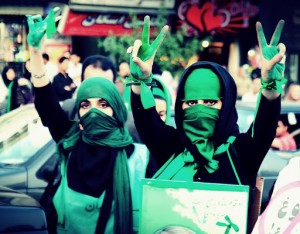Arabs and Democracy – Part 1
Tuesday, January 31st, 2012 5:52:59 by Fouad Ashraf
Arabs and Democracy – Part 1
Many suggest that the uprisings that spread through North Africa and the Middle East are not to be taken as a repetition of the past, but as original experiments that open up new political possibilities, relevant beyond the region, for freedom and democracy. In
fact, it is expected that through this cycle of struggles, the Arab world will become similar to Latin America was in the next decade, where a lot of political experimentation between social movements and progressive governments will take place.
These riots that have taken place can immediately be considered a kind of ideological cleansing, eradicating racist conceptions clash of civilizations that disparages usual Arab politics. The crowds in Tunis, Cairo and Benghazi have broken with the political
stereotypes that seem to compel the Arabs to choose between secular dictatorships and fanatical theocracies, or that Muslims are somehow incapable of enjoying freedom and democracy. Even calling these struggles "revolutions" seems to mislead commentators,
who assume that the progression of events must obey the logic of 1789 or 1917, or some other European past rebellion against medieval kings.
These riots have taken the heat to issues in the Arab states, such as unemployment. The centre is located youth with high academic whose ambitions have been frustrated, a population that has much in common with students protesting in London and Rome. Though
the main demand has travelled throughout the Arab world focuses on the end of tyranny and authoritarian governments. Behind this cry was a series of social demands regarding the work and life. They are not only aimed at putting an end to dependency and poverty,
but to give power and autonomy to an intelligent and highly capable people.
The organization of the riots is similar to what we have seen for over a decade in other parts of the world, from Seattle to Buenos Aires, and from Genoa to Cochabamba, Bolivia: a horizontal network that has no single leader at the centre. Traditional political
actors can participate in this network, but cannot direct it. Outside observers have tried to appoint a leader of the revolt of Egypt from its start, maybe it’s Mohamed El Baradei, perhaps Google’s Head of Marketing, Wael Ghonim.
Short URL: https://www.newspakistan.pk/?p=11302

















